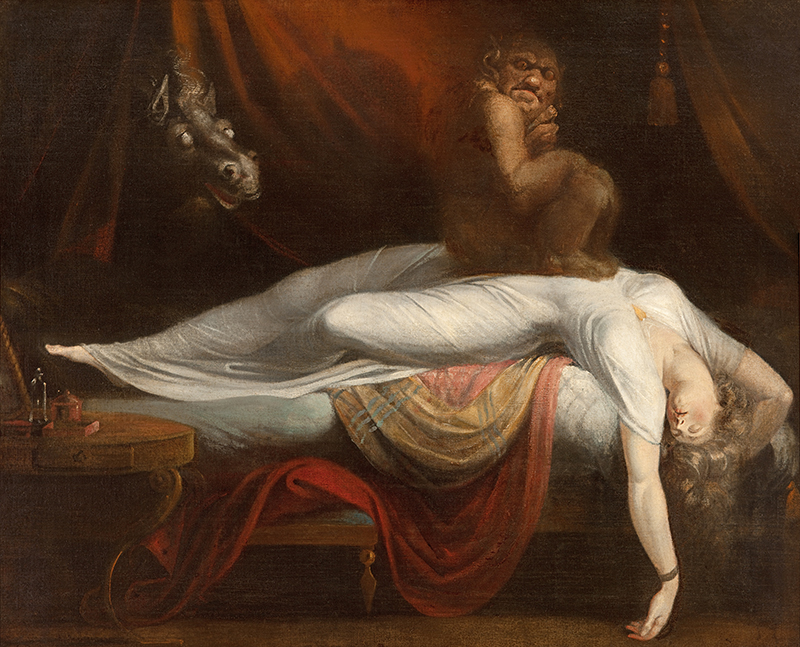Nightmare is a frightening dream or dreamlike experience that often awakens a sleeper. People who have nightmares can frequently report details of the experience. Nightmares may occur in times of severe tension. They may also follow a hurtful or shocking experience. Many people experience nightmares after watching films or television shows with themes involving horror, suspense, or the bizarre. Nightmares can also be triggered by eating before bedtime or by an illness—especially when accompanied by fever. Withdrawal from alcohol and certain drugs can also cause nightmares.
The term nightmare comes from the Old English word mare, a kind of female evil spirit or goblin. In European folklore, people believed that this spirit would sit on a person’s chest while he or she slept, causing bad dreams.

Most nightmares occur during a stage of sleep called REM (rapid eye movement) sleep, as do most dreams. REM sleep is typically concentrated during the second half of the night.
Another kind of frightening sleep event, similar to a nightmare, is called a night terror. In a night terror, the sleeper awakens in a state of great fear with an extremely rapid heartbeat and a feeling of pressure in the chest. Most sufferers do not remember the details of the frightening episodes. If they are able to describe the experience, they often report a single frightening image, rather than a complex dream. Night terrors usually occur earlier in the night, during non-REM stages of sleep. They are more common in children, but adults may also have them.
Frequent nightmares or night terrors among older children and adults may indicate a physical or emotional problem. Nightmares may be a symptom of post-traumatic stress disorder, or PTSD. In severe cases, nightmares can be treated with antidepressant or antianxiety medications, hypnosis, or psychotherapy.
